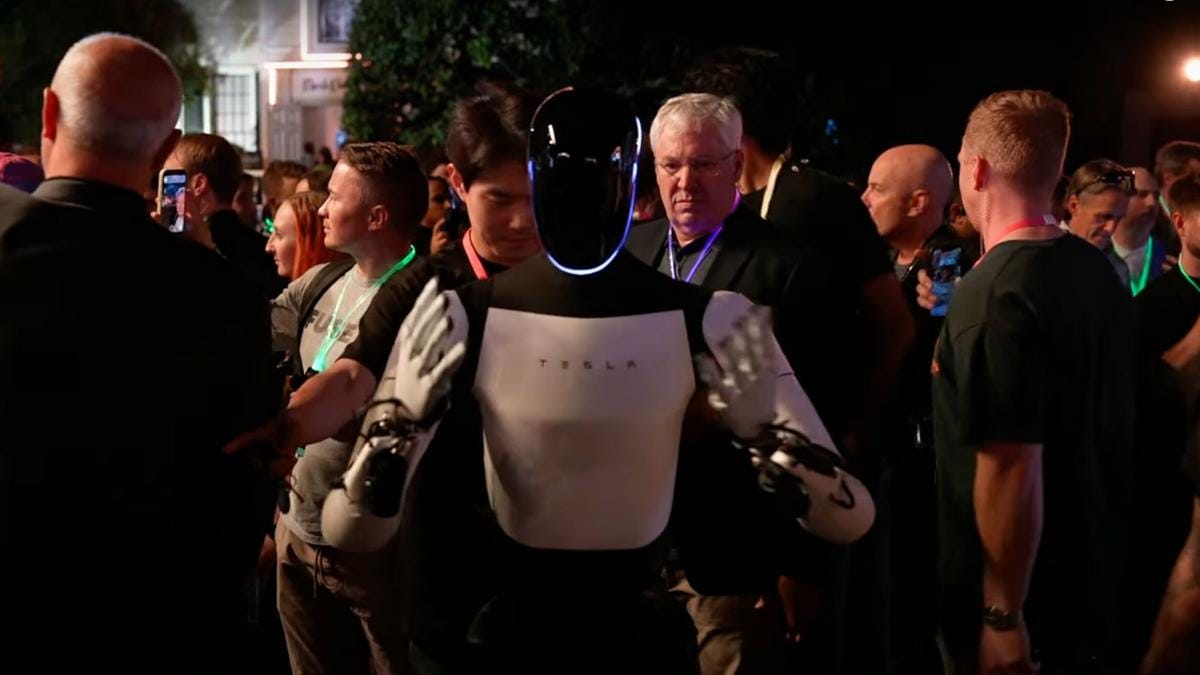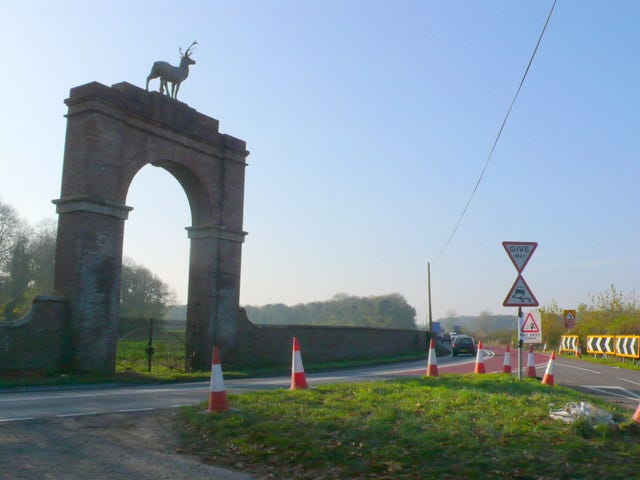Whenever I drive down to the South West of England, I pass the Great Wall of Dorset, a seemingly never ending brick wall broken only occasionally by imposing gateways topped with giant animal statues. The wall containing roughly 2 million bricks separates the A31 road from the home estate of the concisely named Conservative MP Richard Grosvenor Plunkett-Ernle-Erle-Drax. The 700 acres behind the wall at Charborough Park is actually just a small part of the 14,000 acre family estate in Dorset and their wider empire beyond. You might wonder how one family could come to be so wealthy, and the answer according to historian David Olusoga is that;
The Drax family are one of the few who were pioneers in the early stages of the British slave economy back in the 17th century and, generations later, still owned plantations and enslaved people at the end of British slavery in the 1830s.
It’s estimated that over the two centuries that the family operated slave plantations in Barbados and Jamaica, approximately 30,000 slaves died. After slave trading and ownership was banned in Britain in the 1830’s, Richard Drax’s ancestor John Sawbridge Erle-Drax (also a Member of Parliament) was paid the modern equivalent of over £600,0001 of tax payers money in compensation for freeing 189 slaves.
Today, each time I drive along the wall, I can't help but contemplate the horrors of slavery and the perversion of a society that instead of imprisoning slave traders, rewarded them with large sums of public money. But even if I put the ethics to one side, I find it hard to comprehend what it really means for one human to control the power of so many other humans. To put it in context, this isn't a number of employees working in a company who are also working to support themselves and a life outside of work, but an army of human beings whose entire existence is dedicated to acting as an extension of the power of another human.
My curiosity got the better of me and I decided to figure out how much power that really is when considered as physical work. If we think of power as energy, then we can translate this into modern equivalents. While a pro athlete such as a Tour de France cyclist can apparently output around 250 watts of power, a manual labourer over an eight hour day will average more like 75 watts2 or 0.6 kWh per day. Drax’s 189 slaves that he set free would have provided him with approximately 113 kWh of work output per day.
As I drive along the Great Wall of Dorset in my electric car, this is a sobering statistic. My car, a ten year old Tesla Model S, has a battery capacity of 85 kWh and my 190 mile drive down to Cornwall will consume the equivalent of a days manual labour for 117 slaves. That's an incredible amount of energy.
Now it's easy to lose sight of the bigger picture here and focus our attention on the excessive greed of the British aristocracy or the pitfalls of electric cars, but this is all part of a more systemic pattern of behaviour in which those of us in developed countries have access to a huge amount of power.
If we zoom out to look at the whole of the United Kingdom, our population of 68.3 million people consume the equivalent of 133 million tonnes of oil equivalent each year in energy. Converted to metric, that’s around 1500 TWh or, wait for it… 2.5 trillion days of manual labour. At the equivalent of over 36,000 human days worth of labour per adult and child in the country, that is an unfathomably wealthy society.
This is why the combination of energy and technology is so powerful, and why the countries that master it tend to dominate the globe. It's also why our modern lifestyles are so damaging to the Earth's ecosystems, because each one of us has such an amplified ability to manipulate physical matter at will. The environmental impact of energy is not just the direct impact of the energy production itself, whether that be fossil, nuclear or any flavour of renewable, but also the impact of applying that energy to alter our physical world.
Having access to so much useable energy is an incredible privilege, and yet a privilege that is easy to take for granted. Technology makes us superhuman, and there are very few of us who would be happy to give up our powers.
I've previously talked before about the Jevons paradox, in which improving the energy efficiency of technology actually results in us using more energy because it opens up new frontiers of what we're capable of as humans. Whilst most of the sustainability world is tunnel visioned on replacing fossil fuels with renewable energy and finding ways to sequester greenhouse gases from the atmosphere, the elephant in the room is that power, including technological power, is seductive. There are very few people in our society, even in sustainability circles, who actually want to give it up.
We see this dynamic in full swing currently as the big tech companies have essentially abandoned their sustainability commitments in the race to develop the most powerful AI technologies. Faced with the choice between having more power and a healthier planet, they have chosen more power. And while we might criticise them for it, the truth is that there are very few people with access to these new technologies who aren’t starting to use them. I was at Blue Earth Summit last week and spoke at two workshops on whether AI can be used for positive change. There were a wide range of perspectives in the room on both days, ranging from existential fear to utopian optimism, but considering that this was an event focussed on sustainability, I didn’t meet anyone who told me that they are avoiding it completely. Even those with deep concerns are quietly seduced by the power being offered in their hands.

The point that I am trying to highlight here is that while conventional efforts in energy efficiency and renewable energy are important parts of the sustainability puzzle, they will never be truly effective if we ignore the other half of the puzzle, which is our own hunger for physical power over the environment.
At the Green IO conference last year I gave a talk in which I stated that we can't decarbonise our energy systems if we keep increasing our consumption of energy, because we're effectively in a race against ourselves to build renewables faster than we consume the extra energy. I mused that perhaps if someone managed to develop zero point energy technology, then we would finally have so much clean energy that we would no longer need to worry about our consumption. The host, Gaël Duez, quickly responded to say that if humanity mastered zero point energy, we would have so much unlimited power in our hands that we would wipe ourselves off the face of the planet.
Having had time to reflect, I feel that perhaps he is right. Until such time that we have the collective self-control to know when enough is actually enough, developing more powerful energy technologies will likely just feed our addiction to energy consumption and its corresponding environmental destruction. While I think we absolutely should continue to work on improving our technologies to overcome their environmental pitfalls, we must simultaneously work on ourselves and support each other to cultivate a culture in which we no longer crave more than we need.
That will mean redefining our concept of quality of life as one that meets the true needs of all citizens without endless consumption and gaining a true understanding that once our physical needs are met, true abundance is to be found within ourselves.
This is a hard thing for businesses to grapple with in a world where excessive consumption is the backbone of most business models, but that’s not a reason to ignore it. If we sit with the tension, we can start to ask ourselves difficult questions about who we exist to serve and how we can support them as human beings rather than as consumers. For example, we might question whether carbon emissions and energy consumption are the best metrics or whether something like “human labour days equivalent” would give us a more grounded perspective. Or instead of developing products that tap into people’s insecurities and creating marketing campaigns that make people feel a sense a lack, we might explore new approaches to business that support people to live more whole lives and find the power that they crave within themselves.
The ultimate goal as I see it would be to succeed in building a cultural bridge between mastery of our outer world and mastery of our inner world. If we achieved that, we could reach that goldilocks point of using just enough power in the right places to give everyone a good life, while respecting the boundaries of our home planet.
On that note, I think that's plenty for today. Drop me a note in the comments below or on LinkedIn to share any examples of businesses that you feel are leading the way to a future that truly challenges our need for ever more power over nature. And if you haven’t already, subscribe below for future issues.
£4,293 in 1836 equates to £614,521 in 2024 according to the CPI Inflation Calculator
Power output of a manual labourer according to Wikipedia





This was without question my favourite article of yours yet Tom. Kudos!! I love the idea of representing electrical energy in terms of human labour, that's powerful. Your question at the end asking for examples of businesses challenging the need for more power over nature... Not a business but made me thinking of the rewilding movement and of more modern approaches to flood defences. Rather than forcing a human centric view of how these eco-systems should operate, they are all about letting nature do it's thing, because that's far more powerful.